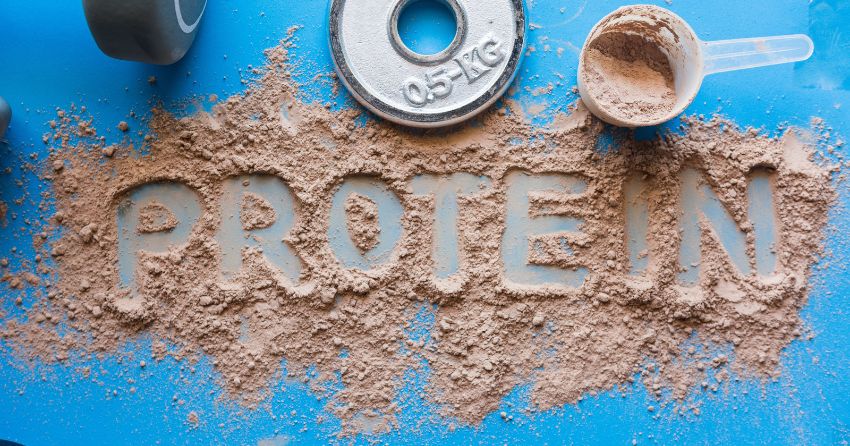The Truth About Protein, Part 2: How Does Protein Intake Impact Longevity?

In the first article of this series, we talked about the basics of protein and essential amino acids, plus the leading benefits of consuming protein for adults over 40, from bone health to sarcopenia prevention to weight management.
Now, we’ll get into the nitty-gritty about protein and aging—specifically, how does protein consumption impact longevity? If you’re interested in lifespan extension, you’ve likely heard that a lower protein intake supports longer lifespan. But we also know that protein is essential for preventing sarcopenia and frailty, which also contributes negatively to longevity. So which is true? Let’s take a look at both sides of this debate.
Protein and Longevity: The mTOR Debate
Some researchers have found that eating too much protein can trigger overactivation of mTOR, while others are quick to emphasize the need for greater protein intake for muscle synthesis and organ function. But first things first, what is mTOR
Standing for the mammalian (or mechanistic) target of rapamycin, mTOR is a protein kinase that is in every tissue in the body. It’s activated by certain amino acids, insulin, and growth factors, and inhibited by nutrient or energy deficiency (like fasting). At times, mTOR activation is beneficial, as it can enhance muscle growth and boost energy. However, it has also been shown to be a negative regulator of lifespan—that is, higher mTOR activity is linked to shorter lifespan.
Although mTOR is in all tissues, the mTOR in skeletal muscle is particularly sensitive to dietary protein (specifically, leucine). According to Dr. Gabrielle Lyon, founder of the Muscle-Centric Institute, as we get older, skeletal muscle tissue becomes less sensitive to the protein we eat, so we actually need double the amount of protein to stimulate mTOR enough to help maintain healthy skeletal muscle.
Protein expert Dr. Don Layman echoes this sentiment. He states that when we’re younger (up to about 25), protein intake is not as important because we have high activity of insulin and IGF-1, which stimulate muscle growth. But as we age, these hormones decline and we need to buffer this loss with higher protein intake (especially leucine) and resistance exercise.
On that note, exercise also stimulates mTOR acutely—but we certainly don’t see recommendations to stop exercising for good health and longevity. As Layne Norton (Ph.D. in Nutritional Sciences) states, “It will never cease to amaze me how many scientists do not understand the difference between a short-term, truncated acute response to a stressor versus dysregulated signaling that persists indefinitely.”
All in all, the correct balance of mTOR is key to longevity—not completely diminishing it. It’s a “Goldilocks” approach—you want to stimulate mTOR at times with high-quality protein in the right amounts (we’ll get into sources and dosages in the next article)—but not all day, every day. You also want to give yourself a break (which is where short-term fasting or caloric restriction comes in) to allow for mTOR inhibition and autophagy to take place.

Protein and Lifespan: A Look at the Research
Despite popular media claiming that excess protein lessens lifespan, there aren’t many human studies validating this. One often-cited study from 2014 determined that adults aged 50 to 65 who reported higher protein intake—20% or more of calories from protein—had a 75% increase in overall mortality compared to those in the lower protein groups.
However, this was just a dietary survey (which are notoriously unreliable), and we don’t know anything about the protein sources—was it primarily fast-food hamburgers, or grass-fed steak and pasture-raised chicken? Paradoxically, the study also found that adults over age 65 who ate lower protein had detrimental effects on health and longevity, furthering the point that protein as we age becomes even more important.
Taking the focus off of dietary protein consumption, we also have to look through the lens of skeletal muscle and longevity. Sarcopenia—the loss of muscle mass that commonly occurs with age—is significantly associated with poor health outcomes, including increased mortality. In a 2022 meta-analysis, adults with sarcopenia had more than doubled the risk of mortality. And what is the best way to prevent sarcopenia? Protein intake and resistance exercise.
The Bottom Line
While research in animals and lesser species supports the notion that stimulating mTOR consistenly can negatively impact lifespan, the way that humans eat is not necessarily reflective of this. We don’t constantly eat meat all day every day—ideally, we have breaks between meals (especially long ones overnight), allowing mTOR inhibition to take place. And as we age, it’s imperative to continue eating protein—and likely even eat more of it, as Drs. Lyon and Layman suggested—to reduce the risk of sarcopenia, which significantly and consistently decreases both quality of life and lifespan.
Therefore, the correct balance of protein—which includes the right sources, dosages, and timing—is optimal for balancing mTOR activity and supporting overall health and longevity. For details about protein amounts, sources, and quality, stay tuned for the third article in this series.





